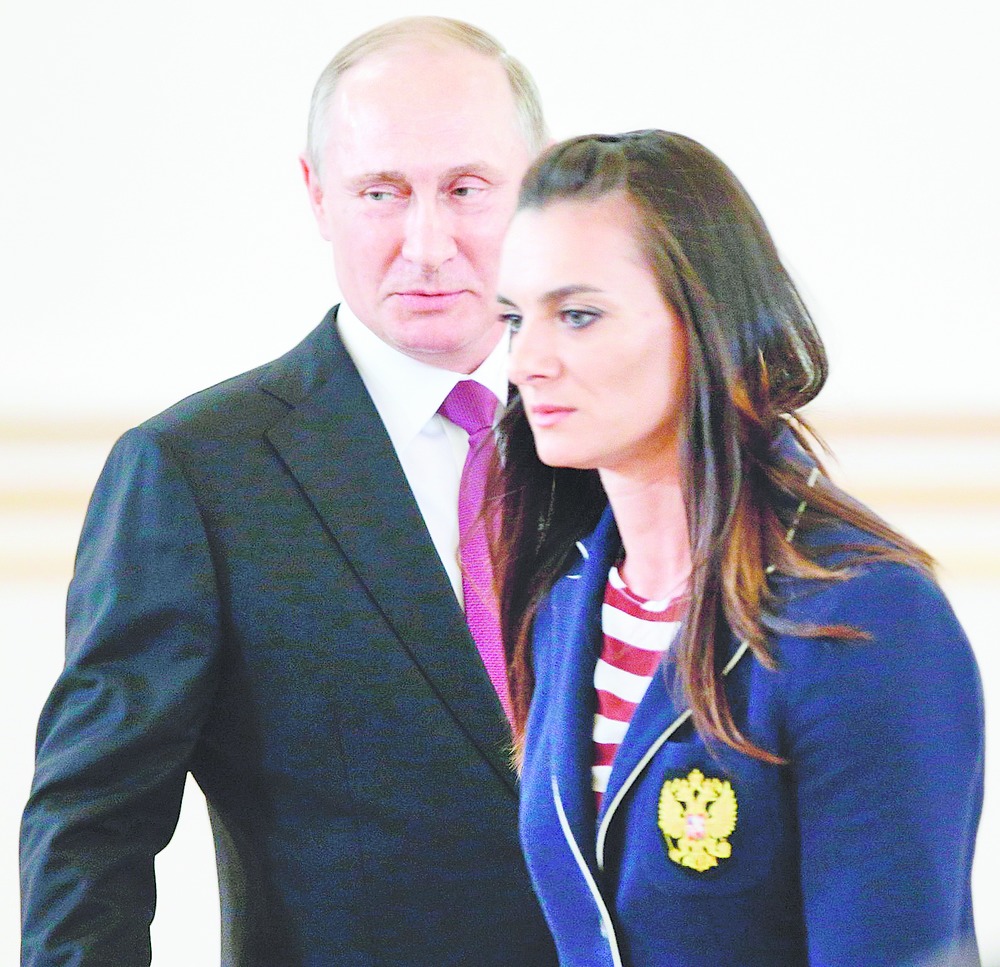
Moscow: President Vladimir Putin said a shadowy political plot had succeeded in unfairly stripping some Russian sportspeople of the right to compete at the Rio Olympics over doping allegations and promised to defend Russia's tarnished sporting reputation.
Addressing members of Russia's Olympic team in the Kremlin on Wednesday, Putin said a decision by global sporting organisations to ban Russian track-and-field athletes and sportspeople in everything from swimming to rowing flew in the face of common sense and legality.
"The deliberate campaign targeting our athletes was characterised by so-called double standards and opted for the idea of collective responsibility, which is not compatible with sport, justice, or the basic norms of law," said Putin.
"It is an attempt to apply the rules which unfortunately dominate in geopolitics to the sporting world," he said, hitting out at what he called "short-sighted political schemers."
With Russia months away from parliamentary elections and stuck in an economic crisis, the scandal, which centres on allegations the Russian government and the FSB security service covered up doping for years, has rocked the Russian sports world and tarnished Putin's showcase 2014 winter Olympics.
But his tactic of pinning the blame on a shadowy plot, which he has previously suggested emanates in the West, taps into voters' patriotism and analysts say the imbroglio is unlikely to hurt his stratospheric ratings.
Putin, a keen practitioner of judo and ice hockey, made his comments to over 100 sportspeople, some of whom have been banned from going to the Rio Games next month because of doping allegations by the International Association of Athletics Federations (IAAF) and other federations.
He spoke after the IAAF said there were "no grounds for further review" of its original decision.
Occasionally looking glassy-eyed and emotional, Putin complained that many of those prevented from going had not been served with specific or proven doping accusations.
"It is obvious that the absence of Russian sportspeople - leaders in many sporting disciplines - will significantly affect the intensity of the competition and diminish the spectator value of the forthcoming events," said Putin.
"Any medal won in Rio in the absence of Russian athletes would be worth much less than usual," he added, predicting many victories would be hollow.
Pledging tough action against any sportspeople guilty of doping as well as the creation of a system to prevent the practice, Putin said someone was trying to rewrite the Olympics' founding principles - of equality, fairness and mutual respect.
The atmosphere at the meeting, held in a glittering hall in the Kremlin, was sombre.
Double Olympic champion pole-vaulter Yelena Isinbayeva, one of the athletes unable to attend Rio because of the scandal, became emotional when she spoke after Putin, saying her Olympic dream and that of others had been stolen.
Putin said Russians excelled in the face of adversity. "There is an important and wonderful quality about the Russian character," said Putin. "Difficulties only unite us and make us stronger."
Earlier, the global governing body for athletics on Wednesday stood behind its ban on Russia's track and field athletes competing at the Rio Olympics.
The Court of Arbitration for Sport (CAS), sport's highest court, upheld that decision last week.
Russian Sports Minister Vitaly Mutko wrote to the IAAF on Monday to get the ban overturned. But there were "no grounds for further review", the organisation said on Wednesday.
The International Olympic Committee (IOC) rejected calls to impose a blanket ban on Russians competing at the Rio Games, after the independent McLaren report found evidence of state-sponsored doping at the Sochi Olympics.
The IOC passed the baton to each of sport's world governing federations to clear individual Russian competitors for next month's Games, adding that the athletes must have a clean international record on drug testing to be eligible to compete.
Maintaining its ban, the IAAF said the applications by 68 Russian athletes for eligibility to compete in Rio were assessed carefully and individually by its Doping Review Board.











